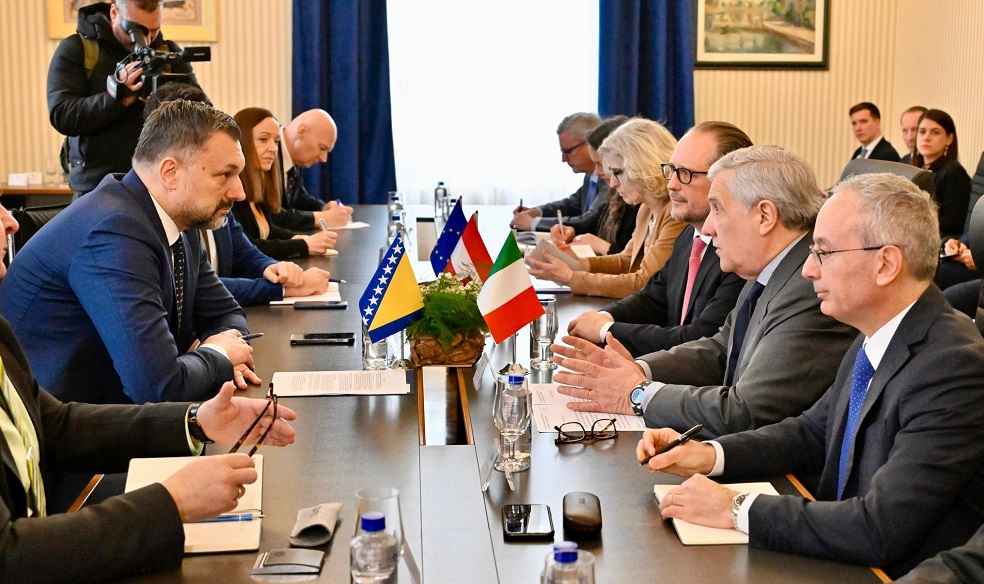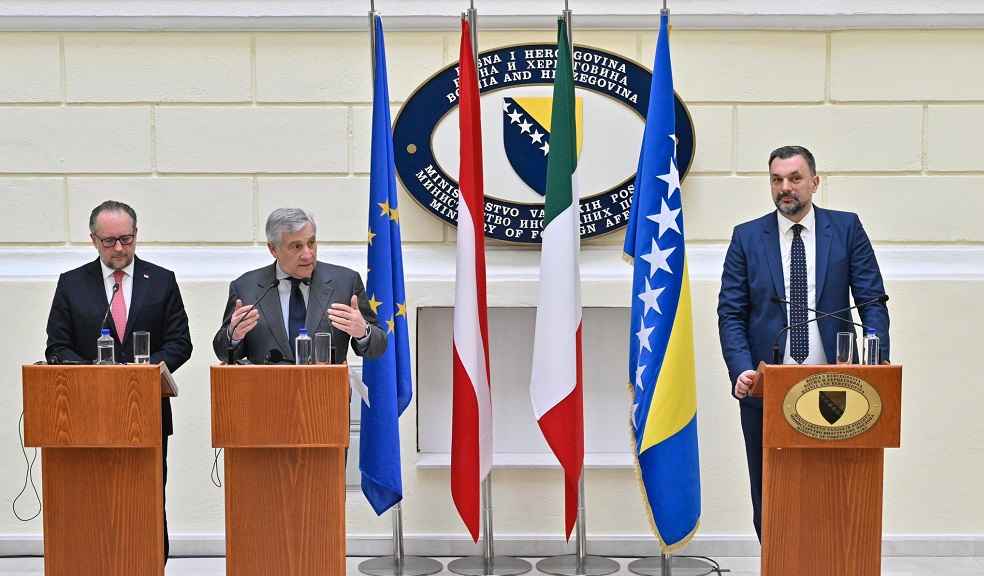Italy and Bosnia and Herzegovina recently formalized a landmark Italy-Bosnia Economic Cooperation Agreement, a ceremony that took place at the Foreign Trade Chamber of Bosnia and Herzegovina in Sarajevo. This pivotal event, attended by Italy’s Deputy Prime Minister Antonio Tajani and Bosnia’s Minister of Foreign Trade and Economic Relations, Staša Košarac, along with leading business figures from both countries, heralds an era of enhanced bilateral trade and mutual investment opportunities.
Reinforcing Economic Linkages
Vjekoslav Vuković, President of the Foreign Trade Chamber of BiH, highlighted Italy’s significant investment footprint in Bosnia and Herzegovina, noting that exports to Italy surged to a remarkable 1.5 billion convertible marks last year. This agreement not only consolidates economic linkages but also propels Bosnia and Herzegovina towards its European integration aspirations, as evidenced by its proactive engagement in European economic forums. Giuseppe Franki’s remarks on the Association of Italian Companies in BiH emphasized the premium quality of Italian enterprises operational within Bosnia and Herzegovina, reflective of Italy’s diverse industrial prowess.

Facilitating EU Integration Pathways
Edin Forto, Minister of Communications and Transport of BiH, articulated the agreement’s role in advancing Bosnia and Herzegovina’s EU integration agenda. The necessity for adopting the EU acquis to streamline trade with EU member states positions this agreement as a critical juncture towards fulfilling EU membership prerequisites. Staša Košarac affirmed Bosnia and Herzegovina’s resolve to adhere to EU standards and prerequisites, underscoring the imperative to sustain and enhance exports to the EU, currently constituting more than 70% of the nation’s total exports.
Spurring Economic Advancement
The agreement sets the stage for a surge in bilateral trade, investment, and overall economic growth between Bosnia and Herzegovina and Italy. Designed to leverage mutual strengths and opportunities, this collaboration framework aims at spurring business innovation, expansion, and sustainable development. The broader implications of this accord extend beyond mere economic benefits, symbolizing a deepened alliance that might well become a paragon for regional cooperation within the Balkans and perhaps even Europe at large.

As both nations anticipate the tangible outcomes of this agreement, the emphasis is on its effective implementation to actualize the envisaged economic advantages. This partnership stands as a testament to both countries’ commitment to navigating the complexities of the global economic landscape, seizing opportunities, and tackling challenges together in the pursuit of shared prosperity and development.
GLOBAL ROUNDUP | India’s Rice Ban Sparks Crisis: Soars Prices, Hits Global Food Security



